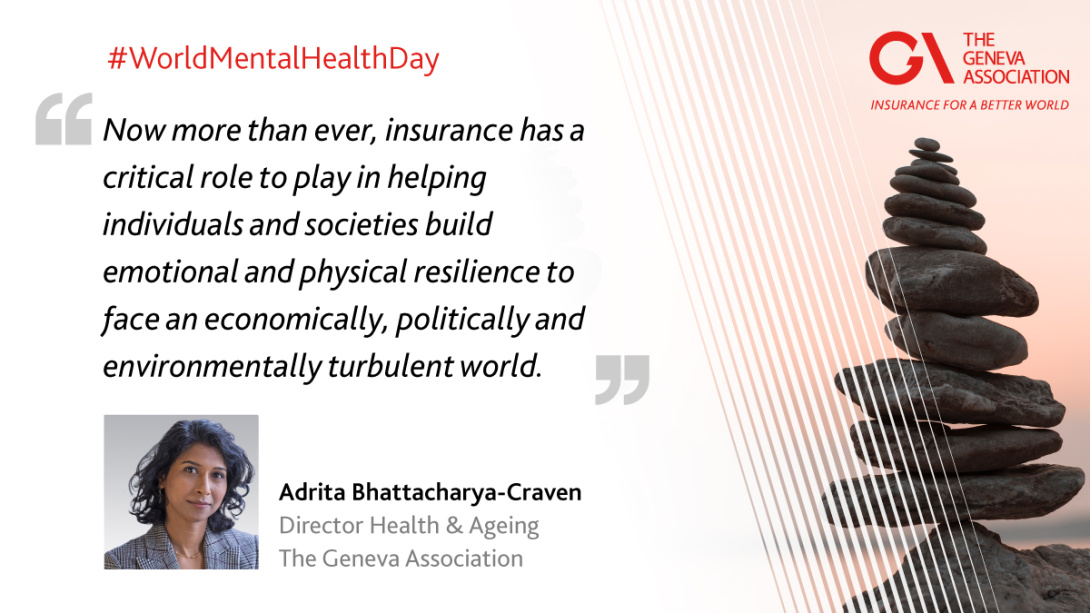Insurers are already paying a high price for poor mental health, despite clauses that limit or exclude coverage, due to information asymmetry. Globally, mental health problems are the most common cause of incapacity to work. Related disability claims are estimated at USD 15 billion annually, with mental health topping the list of drivers in countries like Australia and Canada.[5] Data on mental health-related medical insurance claims is sparse but health payers (including voluntary health insurers) and health service providers have compartmentalised physical and mental health. In reality, however, complex comorbidities blur the lines between the two. There is evidence to suggest that the state of emotional and social well-being is linked to physical health outcomes, with as much as a 29% heightened risk of coronary heart disease and 32% increased risk of stroke associated with poor mental well-being.[6] Other studies have established links between non-communicable diseases, such as diabetes and cancer, and mental health problems.[7]
If life and health insurance are to play a constructive role in mental well-being, companies will have to ask themselves the following:
- Are exclusions, coverage-postponement and coverage-ceiling-driven approaches making things worse? For instance, is a longstanding income protection claim for a musculoskeletal problem being further aggravated by an underlying mental health issue that prevents someone’s timely return to work?
- Given the strong links between mental health and chronic health conditions, are life and health insurers picking up the cost of poor mental health indirectly?
- Can income protection plans be improved by detecting warning signs earlier and acting on them, rather than undertaking a retrospective analysis of a mental health claim three to six months down the line, when symptoms may have already worsened?
- Can they do more to address the root causes of financial stress and workplace burnout, some of the leading triggers of poor mental health?[8]
With one in eight people suffering from mental health problems, the current approach is beginning to lose its relevance. Societal expectations are changing and despite the taboos associated with experiencing poor mental health, many people are coming forward for support. Now more than ever, insurance has a critical role to play in helping individuals and societies build emotional and physical resilience to face an economically, politically and environmentally turbulent world. While caution is justified, business as usual is not an option.






